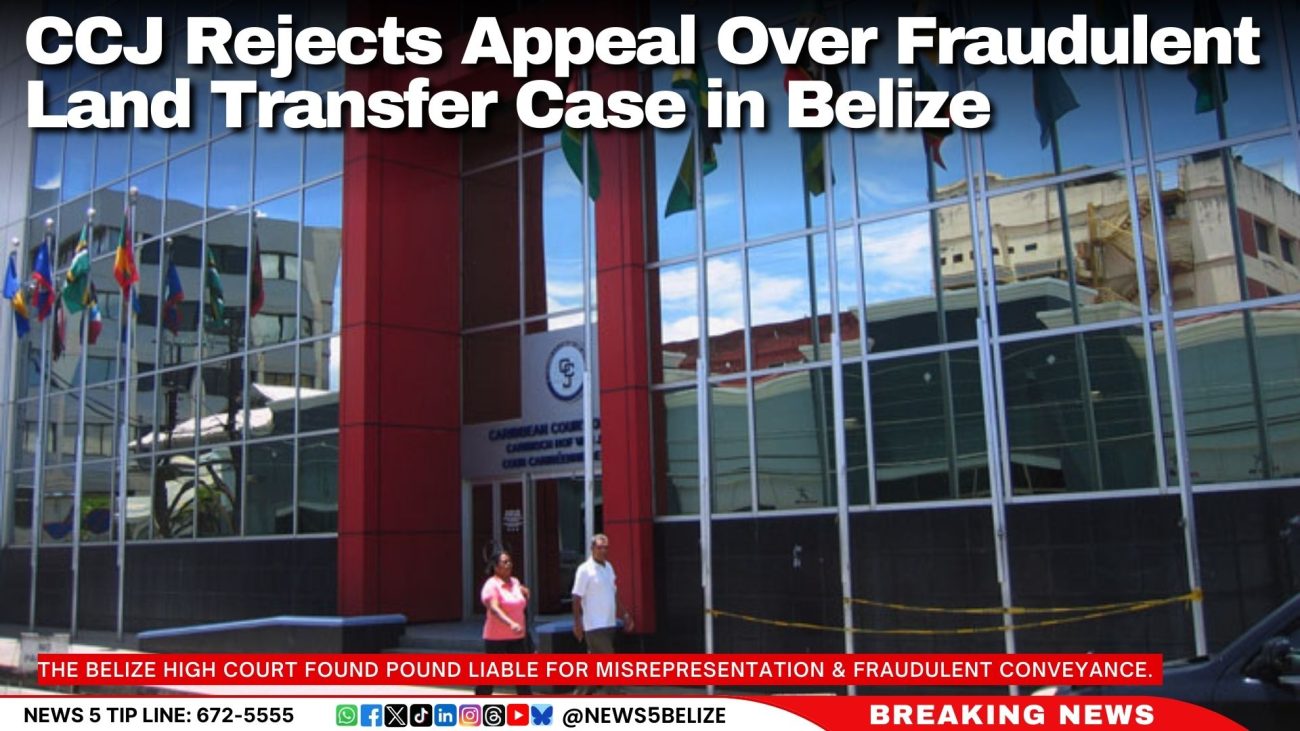CCJ Rejects Appeal Over Fraudulent Land Transfer Case in Belize
The Caribbean Court of Justice (CCJ) has dismissed an application for special leave to appeal a judgement involving misrepresentation and fraudulent conveyance of property in Belize. The decision, issued on December 17, 2024, and explained in further detail today, also denied a request to stay the enforcement of the judgement.
The case centres on a 120-acre property in Serango Bight, Stann Creek District, owned by Belizean businessman George Dueck. Dueck had entrusted the late Thomas Pound, a U.S.-based real estate broker and missionary, to assist with the property’s development for tourism. Acting on Pound’s advice, Dueck transferred ownership to him to facilitate potential investments from U.S. buyers. However, Pound later transferred the property to a Belize-registered entity he controlled, Kingdom First Ministries International (KFMI).
In 2014, the Belize High Court found Pound liable for misrepresentation and fraudulent conveyance. Although the Court of Appeal upheld the ruling in April 2024, it reduced the damages payable to Dueck.
The latest legal challenge was filed by Kyle and Darin Pound, representing Pound’s estate and KFMI. They sought special leave from the CCJ to appeal, as they had missed the 42-day deadline to file an appeal with the Court of Appeal, as required by the Caribbean Court of Justice (Appellate Jurisdiction) Rules, 2024.
The applicants attempted to circumvent the rules by making a late appeal to the Court of Appeal, which had no jurisdiction to extend the deadline. After their application was denied, they filed for special leave from the CCJ, claiming the refusal constituted grounds for their appeal.
The CCJ deemed this approach an abuse of process and dismissed the application. Additionally, the court reviewed the intended grounds of appeal and determined they had no realistic prospect of success. As a result, the CCJ refused to grant special leave and dismissed the request to stay the original judgement.







Facebook Comments